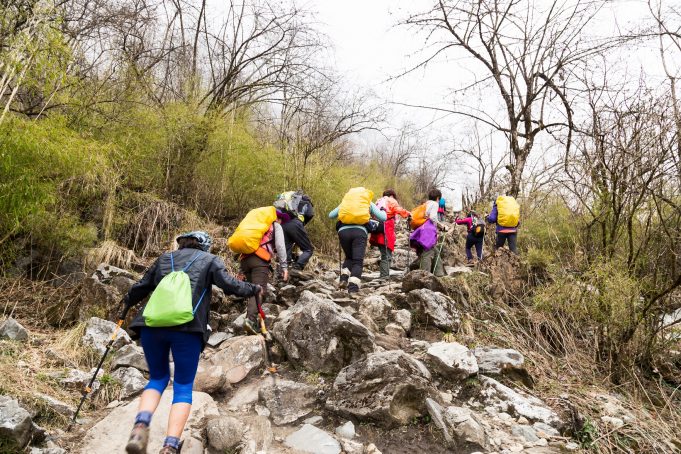Responsible Trekking Part 2
Ask any outdoors person and they’ll tell you, enjoying the outdoors responsibly is more than just a bunch of rules to be followed. It is a lifestyle that is innate, and calls for a lifetime dedicated to pursuing a deeper, stronger relationship with nature.
Ethics
- Independence: Take care of yourself and the rest will be taken care of is the right attitude. Eliminate co-dependency in any way; for example: do not pack heavy and expect someone else to bear the burden of the load.
- Skills and survival: These can save your life and keep you from harm. Know how to light a fire (for warmth or cooking), give basic first aid, swim, cycle, drive, assess and manage risk. Aim to bring a diverse dimension to the collective knowledge and experience of the group. Even something as simple as knowing a bunch of key knots can come in handy in multiple outdoor scenarios.
- Support the local community: Let this be the foundation for action and decision making.
- Sensitivity: Remain patient, tolerant and sensitive to the needs of others. Be pragmatic and neutral in expressing your own needs, no matter how fatigued or pushed-up-against-a-wall you feel.
- Silence, pause, observe: Look up, look down, look left and right, look up again, feel the cool air and beads of sweat, just breathe. It is so important to pause and take in the moment. What’s the point if the entire trekking experience is just merely a fast forwarded blur? Pause and observe the elements around you, enjoy the silence, do not try to constantly drown it out with incessant chatting or loud music.
- Leave No Trace: This is a comprehensive, widely recognized, best practice (and international organization) for outdoor exploration. Learn more about it here: https://lnt.org/about
Practices
- Respect the wildlife and ecosystems of the location: Do not ever interfere with natural systems and features when encountered. For example, if you chance upon a bird’s nest, leave it alone.
- Do not litter: Carry garbage bags and make sure you never, ever litter. It is interesting to note that even biological waste is not always a good thing, as they can propagate invasive species depending on what you’re throwing and where you are.
- Volume control: Keep it down. Don’t play loud music, scream, or make loud noises unnecessarily. We tend to forget that an animal or bird becomes aware of our presence the second we step into the forest (regardless of whether you are aware of all that surrounds you). Keep volumes at all-time lows; in fact, silence is ideal. Being loud reduces your chances of spotting wildlife in a big way.
- Artificial scents and fragrances: These irritate the animals around you and can be disorienting. Again, strong artificial odors slash any slight chance you may have of spotting birds or animals.
- Clothing: Bright or dazzling clothing and any kind of jewelry makes you unnecessarily and unavoidably visible – avoid them at all costs. Avoiding bright clothing will increase your chances for wildlife viewing.
- Add value to the group: You can do this by contributing your time and effort towards a task or objective. For example – make a fire, cook a meal, organize a game.
- Elephant-wise: Follow the time tested strategy of the wise elephant: move as fast as the slowest member of the herd. That way, you stay together and everybody is safe.
These ethics and practices make every trekking experience worthwhile, safe and memorable.















































